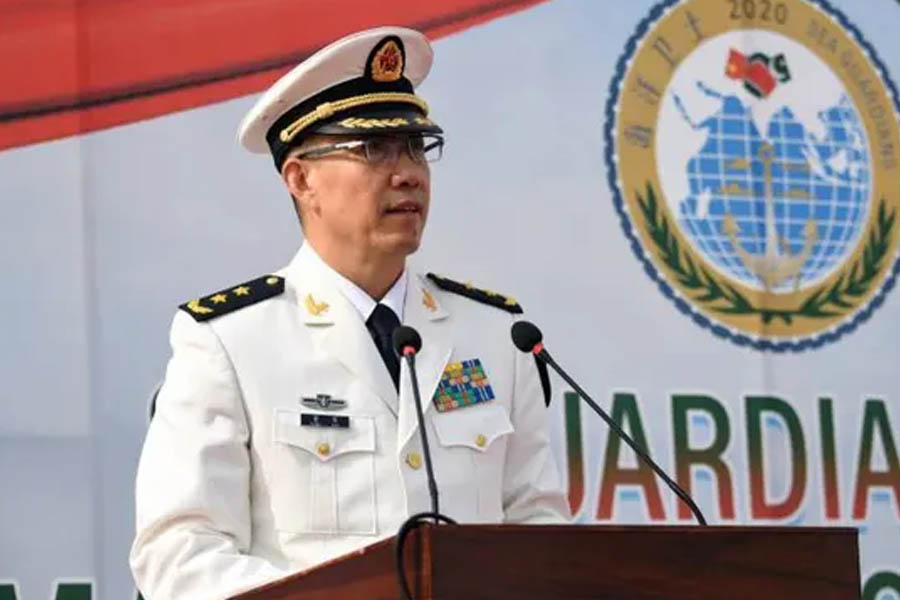
China has made a significant move in its military leadership by appointing Dong Jun, the former chief of China's navy, as the new defense minister. This decision follows the removal of Li Shangfu from the position two months ago amid corruption allegations, marking a notable change in the country's military landscape.
The announcement was made by the Standing Committee of the National People’s Congress, China’s de facto legislature, indicating the official endorsement of Dong Jun as the new defense minister. At 62 years old, Dong brings extensive experience, particularly from his recent role as the chief of China’s navy.
The timing of Dong's appointment coincides with the removal of three senior executives from the aerospace defense industry from a top advisory body to the Chinese Communist Party (CCP). This move is seen as part of a broader military shake-up, possibly linked to an anti-graft campaign that may have affected Li Shangfu.
Li, who was ousted from the defense minister role in late October, has not been seen in public since August 25. The allegations against him reportedly involve corruption related to the procurement of military equipment during his tenure as the head of the military equipment procurement department of the central military commission from 2017 to 2022.
The appointment of a former navy chief as the defense minister is seen by analysts as a strategic move. Wen-Ti Sung, a political scientist at the Australian National University, suggests that this signifies China's increased focus on the South China Sea as a new priority area of geopolitical contestation between China and the US.
This leadership change follows a broader trend in recent months, including the replacement of senior commanders in the rocket force, one of the People’s Liberation Army’s crucial divisions. The new rocket force commander, Wang Houbin, comes from the navy, reflecting a pattern of leadership transitions within the military.
Unlike his predecessor Li Shangfu, Dong Jun is not believed to be subject to US sanctions. This could potentially ease his ability to engage in military diplomacy with the United States. During Li's seven months as defense minister, he did not meet with his US counterpart, Lloyd Austin, in protest against sanctions imposed by Washington.
The appointment of Dong comes at a crucial time for Sino-US relations. Dialogue between Washington and Beijing is considered vital in mitigating the risk of conflict in sensitive regions such as the Taiwan Strait and the South China Sea. The meeting between Xi Jinping and Joe Biden in San Francisco in November resulted in an agreement to resume senior-level military talks, signaling a willingness to address key issues through diplomatic channels.
As Dong Jun takes on the role of defense minister, his responsibilities will include representing the military in public and engaging in diplomatic activities. However, it's important to note that ultimate control over the armed forces remains in the hands of China’s president, Xi Jinping, who holds the position of chairperson of the central military commission and is the general secretary of the CCP. The dynamics of this leadership change will likely influence China's military posture and diplomatic engagements in the coming months.